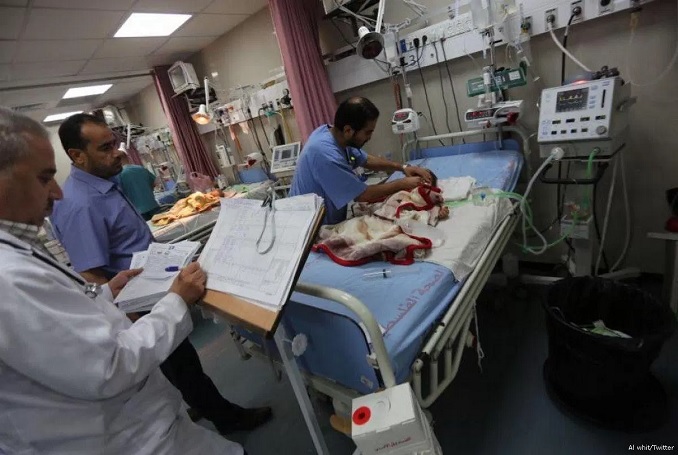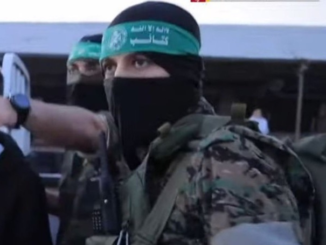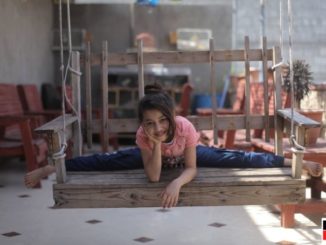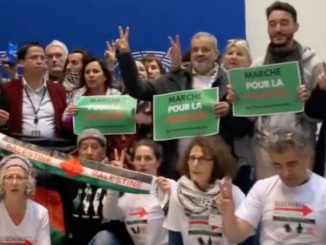
By Dr. Ashraf Elqedrah
Israel’s siege on the Gaza Strip started as soon as it was known that Hamas had won the Palestinian elections in 2006. Even though independent observers declared the polls to be “free and fair”, Israel and its supporters in the West established a blockade that remains in place to this day. They have been supported in this by the Egyptian government of Abdel Fattah Al-Sisi since he overthrew the democratically-elected President Mohamed Morsi in 2013.
The blockade affects all aspects of life in the impoverished Gaza Strip, but none have the life and death immediacy of the health sector, which has been devastated by Israel. Medicines, medical consumables, laboratory materials and blood banks have all been hit by the siege.
Almost half of the items on the essential drugs list are not available in Gaza. The effect of this is compounded by the one-third deficit of medical disposables which are equally essential for hospitals and clinics to operate effectively and safely, such as disinfectant, syringes, anaesthetics and analgesics and suchlike. More than half of the necessary requirements for pathology labs and blood banks are also missing. The effect is catastrophic for patients, from accident and emergency cases to those who are seriously ill with, for example, cancer and kidney disease, and others who are in urgent need of surgery.
If and when medical equipment breaks down or is in need of a service, the Israeli siege means that spare parts are unavailable, and thus the machinery more or less reaches the end of its effective life. Even when equipment such as dialysis machines, heart monitors and scanners are operable, the daily power cuts mean that hospitals must rely on back-up generators which are only ever intended for emergency use, and they also tend to break-down and need spare parts. It’s a vicious cycle of deprivation and difficulties. What’s more, the generators need fuel to operate, and fuel is also in short supply due to the Israeli blockade.
The Palestinians in Gaza used to have the option of travelling abroad for surgery. This is no longer possible for the vast majority of people because the only window to the outside world, the Rafah Border Crossing, has been closed by Egypt for months on end. Patients who try to leave Gaza via the Israeli-controlled Erez Crossing face harassment and attempts to enlist them and their families as collaborators in return for Israel letting them through to the occupied West Bank and beyond.
Israel’s frequent medical offensives against the people of Gaza have also targeted hospitals and medical facilities. Repairs have not been possible for the four hospitals destroyed by Israeli bombs in 2014 because building materials are refused entry into the besieged enclave. Twenty-one health centres face the same problem. The lack of these vital facilities means that those which are still able to operate are seriously overloaded with patients requiring urgent care. The development of existing facilities, such as new maternity and surgery complexes in Al-Shifa’ Hospital and Nasser Medical Centre respectively, are also affected by the severe shortage of materials caused by the Israeli-led siege.
Amazingly, the health sector in the Gaza Strip is also a victim of punitive measures taken by the Fatah-controlled Palestinian Authority in Ramallah. The PA is holding back on salaries, investment and appointments of senior positions as part of its supposedly “reconciled” dispute with the formerly-elected Hamas government. Thousands of health workers are affected by this, and this hits the local economy as well as their ability to operate successfully in their roles.
The Israeli blockade is sold to the world as a matter of “self-defence” in order to “defeat terrorism”, but the reality is that Israel is deliberately targeting Palestinian civilians in an act of collective punishment that amounts to a serious crime under international law. Unless and until the world wakes up to this fact and moves to end the blockade, the health sector in the Gaza Strip will break down completely. Is the international community ready to accept such an eventuality?
– Dr. Ashraf Elqedrah is the spokesperson for Gaza’s Ministry of Health. (This article was first published in Middle East Monitor)







